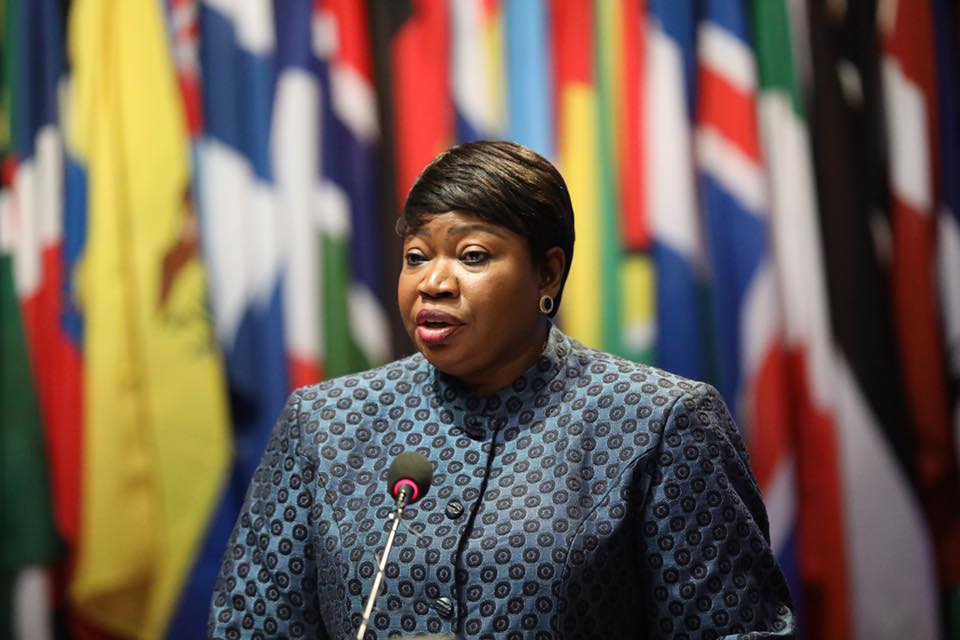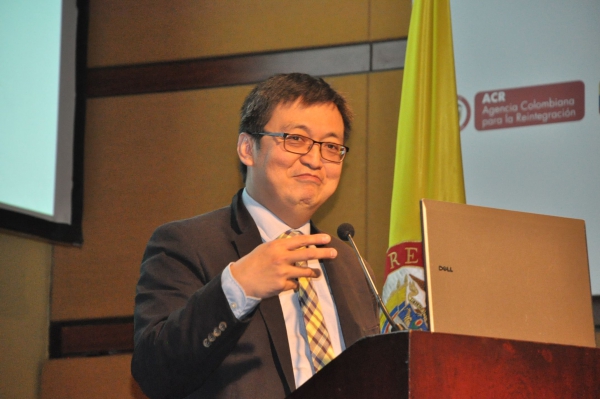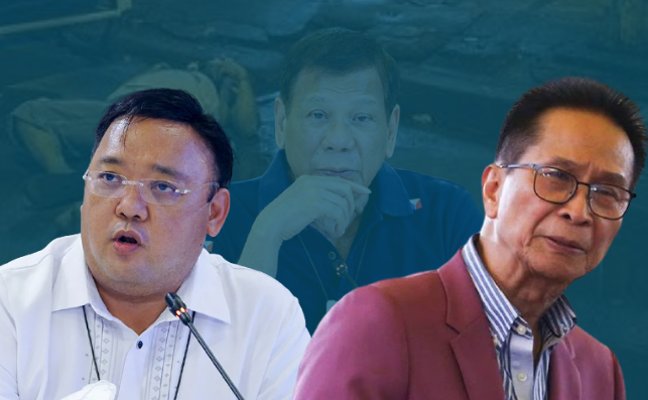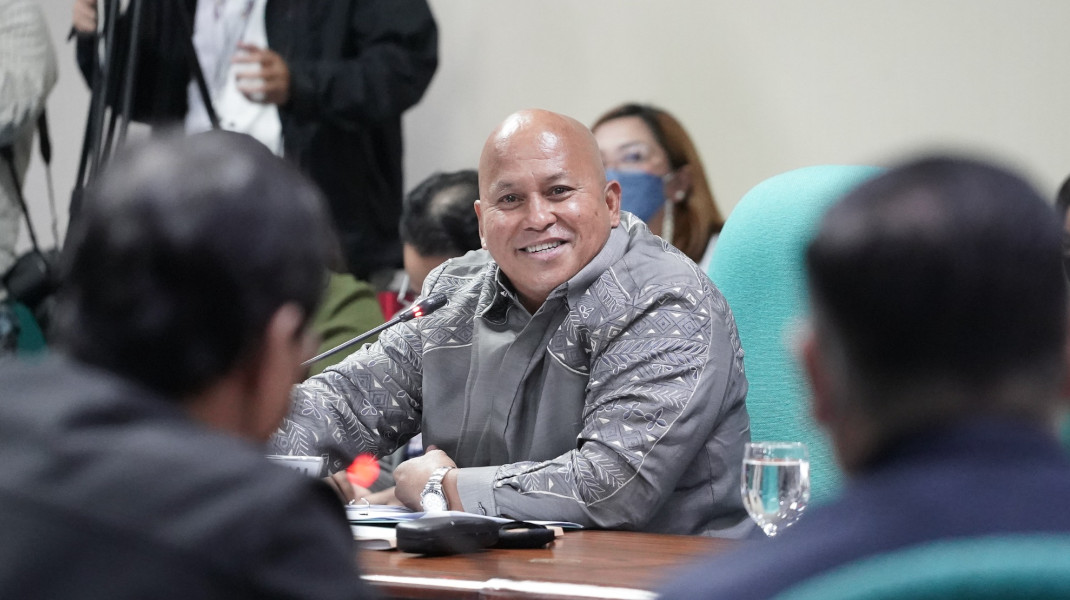The International Criminal Court (ICC) on Dec. 5 said it “aims to finalize” in 2020 its preliminary examination on alleged crimes against humanity carried out in the conduct of the Duterte government’s war against illegal drugs.
In its 2019 report on preliminary examination activities, the ICC Office of the Prosecutor, led by Fatou Bensouda, said:
“During the reporting period, the Office significantly advanced its assessment of whether there is a reasonable basis to proceed under article 15(3) of the Statute. During 2020, the Office will aim to finalise the preliminary examination in order to enable the Prosecutor to reach a decision on whether to seek authorisation to open an investigation into the situation in the Philippines.”
Source: International Criminal Court, Report on Preliminary Examination Activities 2019, Dec. 5, 2019
The preliminary examination — a process to determine if there is “reasonable basis” to proceed with an investigation — focused on allegations that President Rodrigo Duterte and senior members of law enforcement agencies and other government bodies “actively promoted and encouraged the killing of suspected or purported drug users and/or dealers,” the report said.
Bensouda launched the preliminary examination on the Philippines on Feb. 8, 2018. A month later, the Duterte government initiated its withdrawal from the Rome Statute, the agreement which created the ICC. As of March this year, the country is no longer a member of the High Court.
Here are three things you need to know about the ICC’s 2019 report.
1. The ICC prosecutor’s office seeks to finalize ‘admissibility’ of potential cases.
Article 17 of the Rome Statute requires the ICC prosecutor office to assess if a case satisfies principles of complementarity and gravity, before the court can deem it “admissible.”
This means the prosecutor must prove that:
- the national legal systems of a State — in this case, the Philippines — have failed or are “unwilling or unable to genuinely carry out” proceedings, to establish complementarity; and
- the case has “sufficient gravity” to justify further action by the court.
Bensouda’s office noted that, based on open source information, there have only been a “limited number of investigations and prosecutions” that were initiated at the national level in connection with the war on drugs campaign.
It noted that criminal charges have been filed against a “number of individuals” who are “typically low-level, physical perpetrators.” It also cited the three police officers who were convicted in November last year for the killing of 17-year-old Kian Delos Santos.
The ICC prosecutor’s office also said it is “examining…out of an abundance of caution” Senate Committee hearings on alleged extra-judicial killings and other national developments.
2. Should the prosecution find ‘sufficient evidence,’ it will then ‘seek authorization’ to pursue investigation.
If the court’s Pre-Trial Chamber, which is composed of three judges, determines that there is “reasonable basis” from the evidence presented by the prosecutor’s office, it will issue either a summons, if it believes the accused will “cooperate and come to court voluntarily,” or warrant of arrest, if it has reason to believe the suspects will:
- refuse to appear voluntarily in court;
- endanger the proceedings or investigation; or
- continue committing crimes if not arrested.
In the pre-trial stage, the judges will determine if there is sufficient evidence to “establish substantial grounds” in the case to proceed to actual trial. Otherwise they will either “decide to close the case or ask the prosecution for additional evidence” or amend the charges.
These decisions may still be appealed “under specific conditions and with the judges’ authorization.”
On the other hand, if the prosecutor concludes that there is no reasonable basis for an investigation, she is then required to inform those who have provided her office the information.
Article 15 of the Statute states, however, that this will not “preclude the prosecutor from considering further information” submitted to her regarding the same situation, in light of new facts or evidence.
3. The report reiterated its jurisdiction over Duterte’s drug war.
The prosecutor’s office further reiterated in its 2019 report that the court has jurisdiction over crimes committed on Philippine territory or by its nationals from the time the country ratified the Rome Statute in November 2011, up to the effectivity of its withdrawal in March this year. (See PH gov’t inaction on 5,000 deaths related to drug war bolsters case vs Duterte in ICC, lawyer says)
Duterte, however, has repeatedly argued that the Statute was never enforced in the country since it was not published in the Official Gazette as required of Philippine laws; the latest was in a Nov. 30 speech where he said the ICC cannot prosecute him “for a thousand years.”
A 1997 executive order by former President Fidel Ramos, which provides guidelines in the negotiation and ratification of international agreements, does not mention a publication requirement for treaties to be in effect.
On the other hand, Bensouda’s office, in the same 2019 report, dismissed for lack of jurisdiction the communication filed by former Ombudsman Conchita Carpio Morales and former Foreign Affairs Secretary Albert Del Rosario against Chinese President Xi Jinping for alleged crimes against humanity in relation to China’s activities in the Philippines’ exclusive economic zone (EEZ). These include “blocking Filipino fishermen’s access” to fishing grounds at Scarborough Shoal and engaging in “massive illegal reclamation and artificial island-building” in the Spratlys, damaging marine life.
Bensouda said a country’s EEZ “cannot be equated to territory of a State” based on her office’s interpretation of the applicable provision in the Rome Statute.
VERA Files Fact Check has tracked several false claims and flip-flops made by Duterte and other officials about the court as early as 2016. Here’s a list:
- ICC can strip of Duterte’s immunity
- Can Duterte invoke territoriality on matters related to crimes specified in Rome Statute?
- Calida falsely claims Duterte immunity exempts him from ICC probe, accuses CHR of bragging about probing the president
- PHL’s notice of withdrawal from ICC is the latest in a string of inconsistent Palace responses to war on drugs probe
- Panelo’s claim about the U.S. and ICC misleading
- Duterte says PH was ‘not ever’ a member of the ICC. Is that so?
- Panelo wrong on ICC again, claims PHL contributes 28% of tribunal funds
- In his 1st media briefing as Palace spokesman, Panelo makes two wrong claims on the ICC
- Panelo flip-flops on PH’s withdrawal from ICC
- Duterte FALSELY CLAIMS the EU created the ICC
- Duterte makes three false claims about the ICC
- Duterte mistakes UN court for ICC
Sources
International Criminal Court, Report on Preliminary Examination Activities 2019, Dec. 5, 2019
International Criminal Court, Policy Paper on Preliminary Examinations, November 2013
International Criminal Court, Statement of the Prosecutor of the International Criminal Court, Fatou Bensouda, on opening Preliminary Examinations into the situations in the Philippines and in Venezuela, Feb. 8, 2018
International Criminal Court, Rome Statute of the International Criminal Court
International Criminal Court, Executive Summary: The principle of complementarity in practice
International Criminal Court, Pre-Trial stage
Inquirer.net, Correcting misconceptions on ICC, March 26, 2018
Official Gazette, Executive Order 459, Nov. 25, 1997
(Guided by the code of principles of the International Fact-Checking Network at Poynter, VERA Files tracks the false claims, flip-flops, misleading statements of public officials and figures, and debunks them with factual evidence. Find out more about this initiative and our methodology.)




